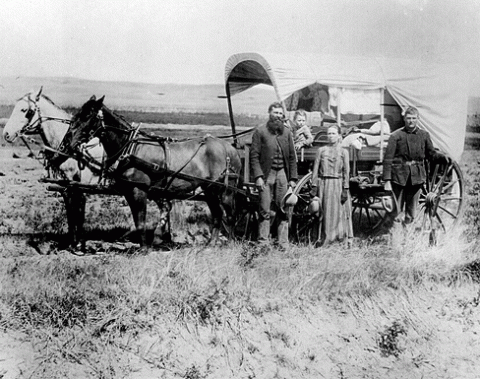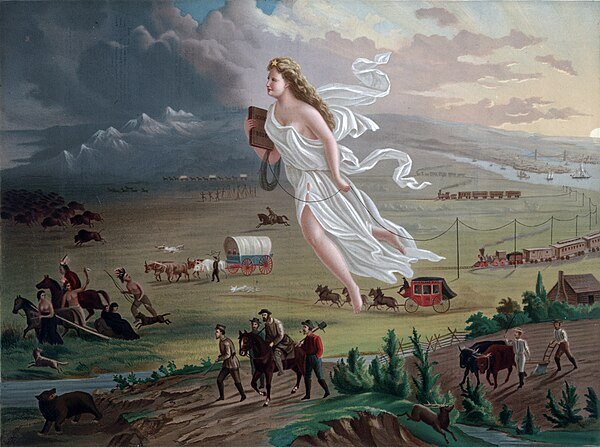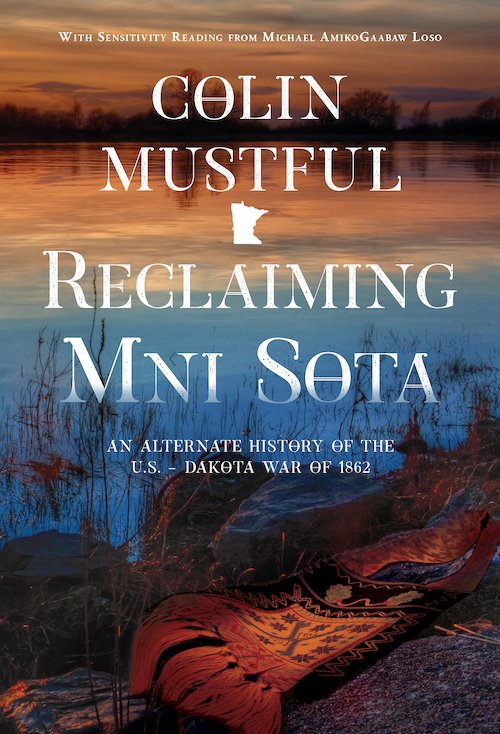Settler Colonialism - Who’s to blame for a system of genocide
In 1850, the white population of Minnesota was 6,077. Ten years later the white population ballooned to 172,023. Ten years after that it grew to 439,706. The people who poured in from the eastern United States and Europe are often called settlers. They are called settlers because they settled upon a land that was new or foreign to them. But that is only half of the story. By settling on the land they also displaced the Native populations already residing there. That makes them settler-colonists.
The term settler-colonialist is relatively new and can feel like an abrasive term for those whose ancestors did the colonizing. By labeling a white settler as a settler-colonialist it can feel like they are being accused of intentionally harming Native populations—like they are being accused of stealing their land. But the reality is far more nuanced and cannot be pinned on any one person for any one reason. Settler-colonialism was a structural, institutional practice that took place over decades and involved a system so large that no one settler should be assigned guilt for the resulting displacement of Native peoples and culture.
In my novel, Reclaiming Mni Sota, I’ve created a fictional family of white settler-colonialists. They live in a small log home in Londonderry, Vermont, and they attribute their homestead to a reward given to the family’s paternal great-grandfather for fighting in the American Revolution. The family uses their homestead to grow a small amount of cash crops, and produce eggs, maple syrup, and goat cheese. The father, Randolph, and his son, Samuel, also work at the local saw mill. But when Randolph is badly injured and unpaid bills pile up, the family begins to worry about their livelihood and future. This is when Samuel has an unsuspecting run in with Mr. McPherson, a land management officer who tells Samuel about the beautiful, arable, and open land in the new state of Minnesota. With the promise of land, opportunity, and a better future, Samuel and his family follow in the footsteps of other Vermont families and head west.
In the mid to late 1800s, the story was the same for millions of American migrants and European immigrants—tough times and the promise of wealth and opportunity prompted them to seek a new life in a new land. Moreover, they were encouraged to head west by the capitalist United States government. White settlement meant economic growth and economic growth meant power and influence. The United States government sought to imperialize the entire land mass from east to west no matter who or what stood in their way. The economic motivation to settle the land eventually became an ideology known as Manifest Destiny—the idea that the United States is destined by God to expand its dominion and spread democracy and capitalism across the entire North American continent.
Settler-colonialists could not see beyond their own livelihoods. They were not wealthy or educated and had few opportunities outside of working the land. They sought only what was promised to them and they went about it with hard work and sacrifice. This is what I attempted to show in my novel. That is not to say that settler-colonialists were blameless. Many of them were ruled by greed and knew they were enriching themselves at the expense of others. But within the context of their daily lives it was impossible to see the scope of their decisions or to comprehend injustices created by their own existence.
Settler-colonialism equals genocide. It equals the removal and replacement of Indigenous populations and the annihilation of their culture and way of life. But it is not done by the settler and her or his family. It is done by a capitalist system, developed over centuries and institutionalized into the gears of society. It is a form of imperialism and it is justified by valuing the needs of one group of people over the needs of another. It is done by valuing wealth and power over the basic humanity of those in the way of wealth and power. It is incredibly destructive and its effects have shaped the world we live in today. It has created the imbalance of wealth and opportunity that have become so commonplace that they are hard to recognize.
Acknowledging Samuel and his family as settler-colonialists is not an indictment. It does not make them bad people for seeking a better life. If I’ve written the characters of my novel well enough, it should show their innocence within a system designed to exploit them and their dreams. We are all victims of settler-colonalism, white and Native, rich and poor. We are all part of the system. What’s important, is to step outside of ourselves and look objectively upon the roots of society. How did we get to where we are today and what role do I and my ancestors play within that world? To start…just read. Read about the people that came before you and empathize with their circumstances—with their world. Take yourself out of the picture and recognize the harm settler-colonialism has done and continues to do. Then, move forward, making the world a better place.
A creative re-imagining of the U.S. - Dakota War of 1862, Reclaiming Mni Sota is an eye-opening portrayal of one of America's most tragic, regrettable events. Told through dual narratives from each side of the conflict, Reclaiming Mni Sota confronts America's history of settler-colonialism while illuminating the personal stories and heartrending choices that men and women, white and Native, were forced to make. Based on real events told through descriptive detail and fully developed characters, Reclaiming Mni Sota reveals the truth of our history while connecting it to the present and asking readers to question how things could have been different.




